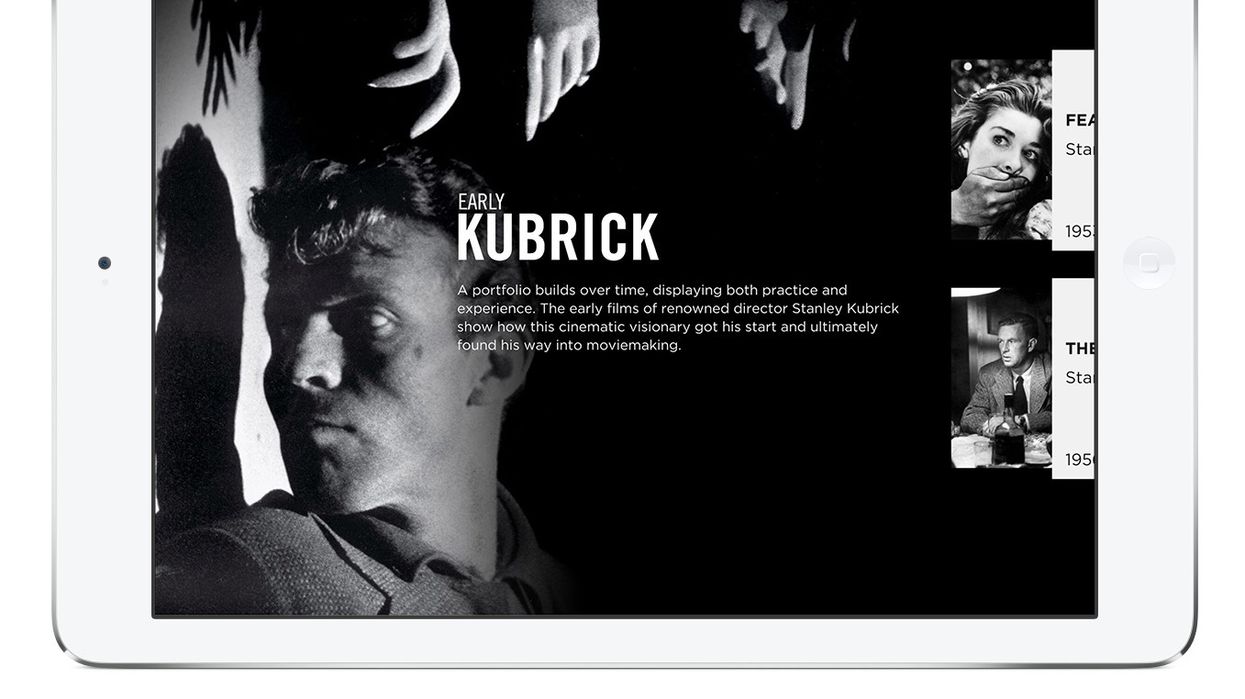5 Really F*cking Great Movies You Could Never Find on Netflix
Thanks to FilmStruck, a new streaming service, you can watch all these classic gems tonight.

Today, TCM and the Criterion Collection launched FilmStruck, a streaming service otherwise known as the new cinephile haven. It will feature the largest streaming library of contemporary and classic arthouse, indie, foreign, and cult films, as well as extensive bonus content, filmmaker interviews, and rare footage.
As if it couldn't get any better, FilmStruck will also host nearly the entire Criterion Collection on its platform.
As we're all well aware, the death of the DVD has left us in a post-cinephile age of finite streaming options and limited ways in which to access some of the best films in cinema history. FilmStruck is angling to be our celluloid fairy godmother.
Perusing the initial library of hundreds of masterpieces, we had an unfortunate realization: none of these films would have ever shown up on Netflix.
Nearly every one of the films listed below has a 100% score on Rotten Tomatoes and is shown in film schools worldwide as a paragon of masterful filmmaking. Take that, I Hate Valentine's Day. (Yes, that is a real movie currently streaming on Netflix.)
1. Stalker (dir. Andrei Tarkovsky, 1979)

Tarkovsky's sci-fi masterwork stands the test of time as one of the most philosophically rich films ever made. More parable than plot, it's the story of three strangers—Writer, Professor, and their tour guide, Stalker—who traverse expansive post-apocalyptic cityscapes in search of "The Zone," the enigmatic site of an industrial disaster which been cordoned off by the military for its potentially dangerous effects. Inside The Zone exists a room that defies the laws of physics. Governed by sentient powers of unknown origin, the room lays bare the deepest and most cryptic desires of your heart—and grants them, no matter how dark they may be.
The film is a dense soup of memories, fears, desires, nightmares, and the vagaries of human consciousness. The otherworldly mise-en-scène makes for evocative images that find beauty in bleakness and uncertainty. Tarkovsky often holds a shot for four minutes or longer, immersing the viewer in the depths of this unknowable landscape.
Tarkovsky was famously cagey when it came to deconstructing Stalker. In his book Sculpting Time, the director wrote, "People have often asked me what The Zone is, and what it symbolizes…The Zone doesn’t symbolize anything, any more than anything else does in my films: the zone is a zone. It’s life."
Not to be confused with...
2. Gimme Shelter (dir. Albert and David Maysles, 1970)

Why Netflix wouldn't bend over backward to include the greatest rock doc of all time in its streaming library is beyond us. Now, thanks to FilmStruck, we've been bestowed with the singular gift of an inside look into the Rolling Stones' 1969 US tour, which culminated in one of the most disastrous concerts known to modern history. During what was supposed to be a euphoric, free show at the Altamont Raceway near San Francisco, a group of Hells Angels beat patrons with chains, inciting a wave of violence across the crowd. One man died and a member of Jefferson Airplane was knocked unconscious. Today, Gimme Shelter serves as a microcosm of the death of the '60s counterculture.
Not to be confused with...
Gilmore Girls. Nope. Nothing to see here, Lorelai. Keep moving along.
3. Wild Strawberries (dir. Ingmar Bergman, 1957)

Perhaps Bergman's greatest film, Wild Strawberries is an elegiac character study of an old man recalling his past and coming to terms with the life he lived. The film brims with nostalgia, profundity, and symbolism that falls just short of overflowing into the gratuitous. Needless to say, it's a movie every student of cinema should see.
Not to be confused with...
Palm Trees in the Snow, a Spanish made-for-TV movie about cocoa farmers. (Because all strawberries should be dipped in chocolate when it comes to Netflix and chill.)
4. Rashomon (dir. Akira Kurosawa, 1950)

Direct anyone convinced of the efficacy of eyewitness testimony directly to FilmStruck to see Rashomon, Kurosawa's ultimate treatise on the subjective nature of truth. Unforgettable camera work and storytelling are on display in this Japanese classic about a handful of witnesses to a rape who cannot reconcile their memories of the event. They report contradictory—and, it turns out, self-serving—perceptions, each retelling the story with more conviction than the next. The film produced an idiom, "the Rashomon effect," used to describe a situation involving conflicting accounts of the same event, such as that time you could have sworn you saw Rashomon on Netflix while your roommate argued that, well, "of course you didn't."
Not to be confused with...
Hot Girls Wanted, which has nothing to do with Japan or the subjective nature of truth—and everything to do with amateur porn.
5. The Night of the Hunter, dir. Charles Laughton, 1955)

The aesthetic precursor to Terrence Malick's Badlands, Night of the Hunter is disturbing and gorgeous in equal measure. Robert Mitchum delivers a formidable performance as a murderous, misogynistic preacher who roams from town to town ingratiating and then terrorizing its residents. A critical and box-office flop at the time, this Southern Gothic tale has gone on to become essential film school viewing.
Not to be confused with...
Headhunters, about an insecure corporate recruiter who gets a little too handsy with expensive art.
For more excellent films, such as The Piano and all of Stanley Kubrick's early films, head over to FilmStruck's library.
















